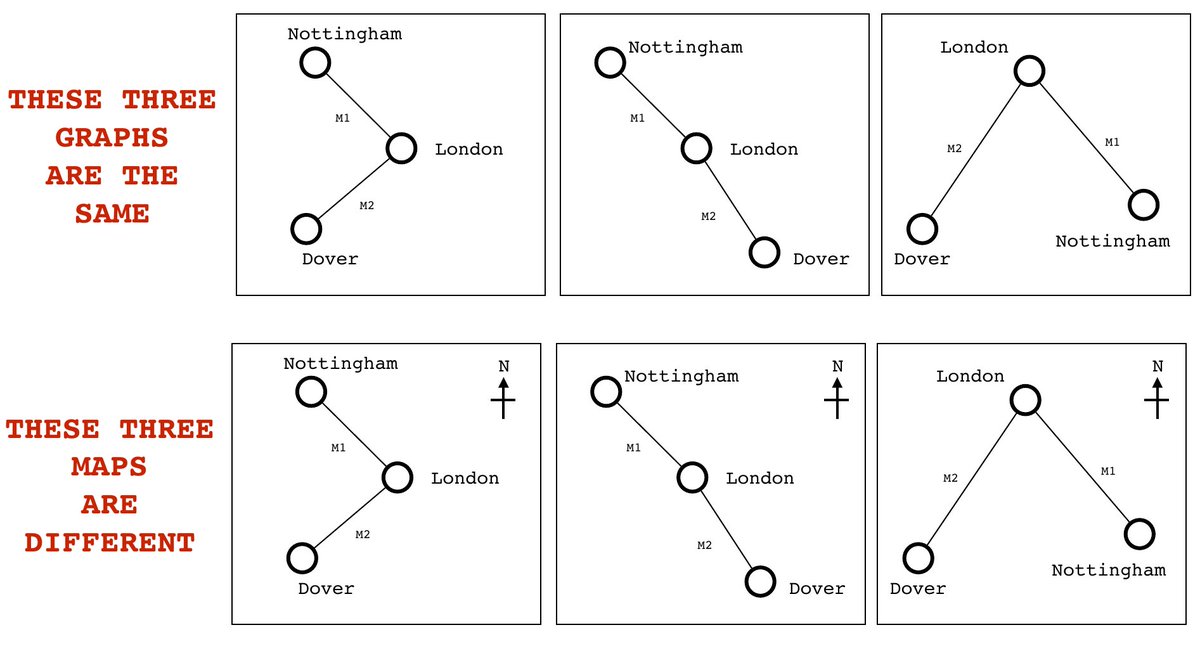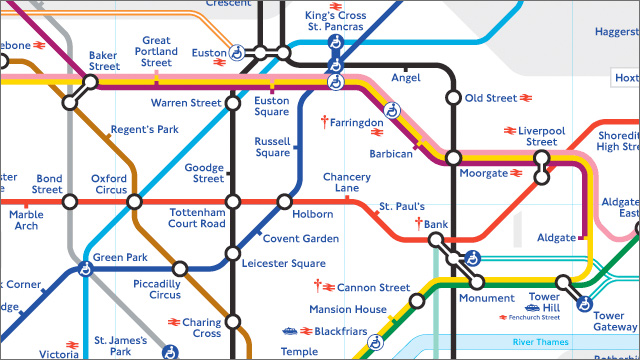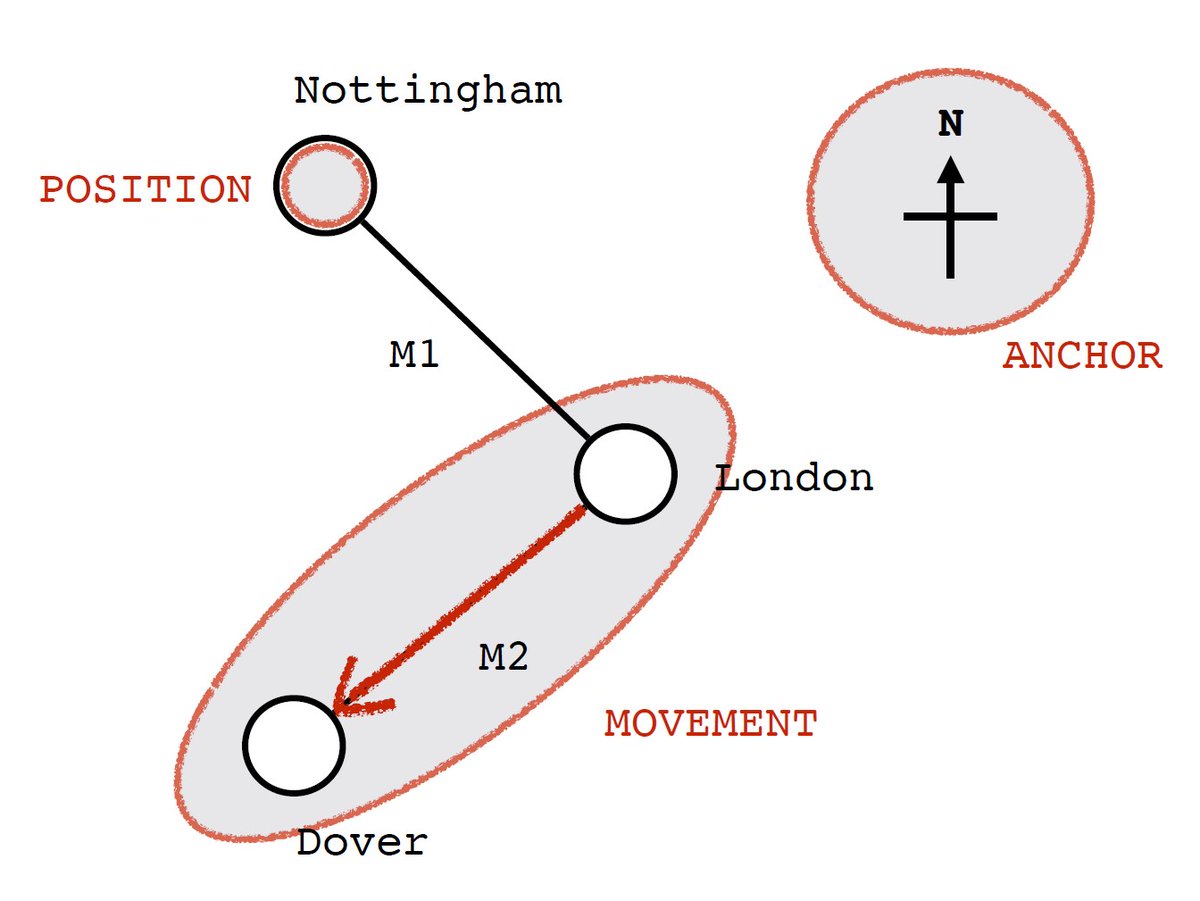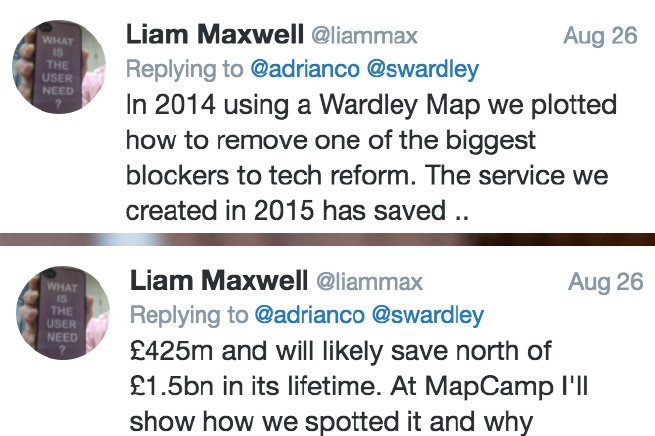
X : Can a graph be a map?
Me : All maps are graphs but only some graphs are maps. In a map, space has meaning ... however ...
Me : All maps are graphs but only some graphs are maps. In a map, space has meaning ... however ...

Me : ... if you collapse all possible paths (i.e. all options) to only those shown on the graph i.e. there is no possibility to wander off the defined paths and to explore the space then in that very special case ... the graph is also a map as the space is exhausted of meaning. 

However, most "maps" that I see - mindmaps, business process maps, systems maps - are not in fact maps but graphs. The options are not exhausted, they provide no means of exploring the space and the landscape does change.
Hmmm ... that was timely - bloomberg.com/news/features/… ... see my notes above. There is a very special (and rare) class of graph where all possible options have been collapsed to the defined paths ... in effect the anchor is the tube network. This is arguably a map.
Remember, in order for space to have meaning (i.e. to be a map) then you need anchor, position and consistency of movement. In the tube map you are in effect limiting movement only to pre-defined paths i.e. you can only move along the tube ... 

That said, there's a lot of stuff that pinches that tube map metaphor and claims to be a map ... they are not, as there are other options and explorable space.
See, I'm learning to play nice and didn't say it's a bunch of dingo's kidneys ... which they are ... and not a map.
See, I'm learning to play nice and didn't say it's a bunch of dingo's kidneys ... which they are ... and not a map.

oh, and for reference -
https://twitter.com/mcraddock/status/1465997008020418560
• • •
Missing some Tweet in this thread? You can try to
force a refresh






